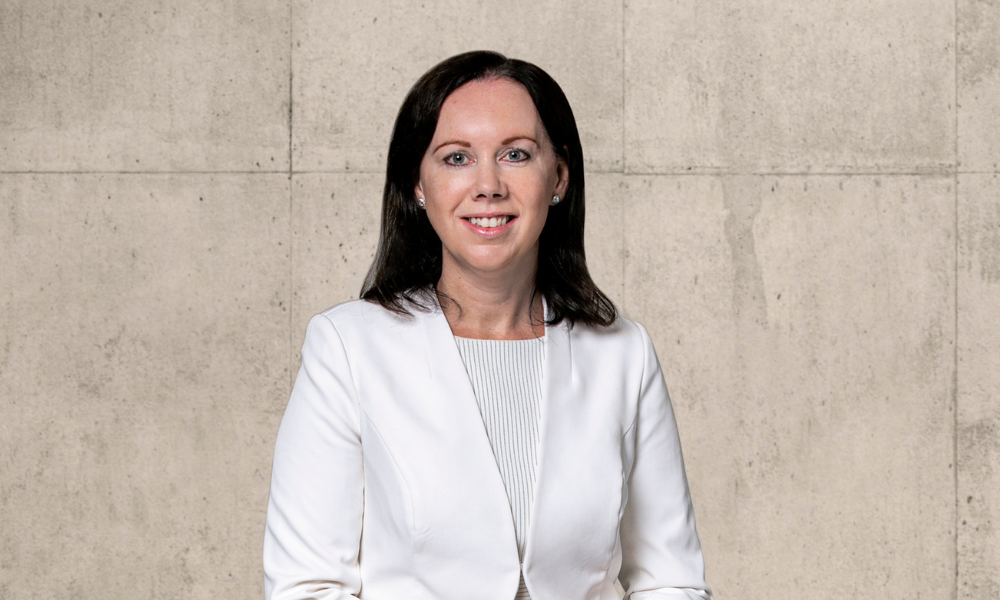
JCDecaux's CPO Alissa Bartlett to speak at upcoming National HR Summit

As organisations work with an increasingly dispersed workforce, measuring productivity and performance can be challenging.
At JCDecaux, a leading out-of-home advertising company in Australia and New Zealand, it’s an area that’s attracted a great deal of thought and attention, given that many staff have opted for a combination of remote work and time in the office.
With results from surveys showing engagement levels at the organisation have increased year on year and are now at the highest level they’ve ever been, Alissa Bartlett, CPO, has been delighted to see the people strategies are working.
“For us, measuring productivity hasn’t been challenging because of the systems and frameworks we’ve put in place,” says Bartlett, who will be on the panel discussing productivity measures for a remote workforce at the upcoming National HR Summit in Sydney.
“We consider productivity - and measuring that - is about two things: employee performance, and just as importantly, employee engagement levels. We’ve put in place systems and processes that help support both of those areas, as well as investing a substantial amount of time and energy into upskilling our leaders and managers, so they're equipped to manage staff who are working remotely at least part of their week.”
Bartlett is clear that at JCDecaux, a successful hybrid work environment is best achieved by creating a balance between using data available and ensuring open dialogue and a high trust environment. Productivity isn’t about location or hours worked, but rather firstly, being able to measure output, she says, which is helped significantly by having HR platform Culture Amp in place.
“At the start of each year, we set really clear, targeted goals for individuals, teams and functions, that are aligned directly to our company’s strategy and overarching objectives.
“We have monthly check-ins for managers and employees to touch base on progress made towards those goals to understand whether people are on track or whether there needs to be an adjustment to the goal or metrics they're working towards.”
Annual reviews are vital too in terms of understanding the distribution of performance ratings across the organisation, she says.
“Through our review of annual results, we see whether or not we are shifting in a positive direction as a company and hitting the KPIs and strategic targets that matter each year.
“However, having a platform to manage and drive performance is meaningless unless you also upskill managers in how to have meaningful performance conversations.”
For this reason, JCDecaux, has invested heavily in leadership and people management development over the last four years, says Bartlett. “Making sure managers are able to have constructive conversations around performance is vital, so that they can coach and give feedback, whether that's positive or constructive.”
Indicators used to directly measure productivity include financial targets such as revenue, market share, and net profit. “There are some quite hard, clear quantitative metrics that we take into consideration,” says Bartlett. “This is especially important given that we have a large proportion of our workforce in sales-based roles.”
People analytics also play an important role in providing insight into productivity, she says, including absenteeism trends, which are also monitored throughout the year to help identify pockets with higher than average levels.
In addition, the Culture Amp platform enables the assessment and review of data across multiple sources.
“That includes assessing the combination of employee engagement, performance data, and exit interview survey data. That gives us the ability to step back and look at some of the overarching trends that may be connected to what's either driving or inhibiting productivity,” she says.
“What we've found is that by analysing our engagement survey data upfront, we're able to predict those sections of the organisation that might be at risk or where we feel there could be some future movement.”
Having this knowledge has enabled proactive retention strategies to be put into place for teams and functions.
To further nurture engagement, JCDecaux encourages creating a connection between people’s roles, their personal career aspirations and the broader organisational purpose, says Bartlett
“We emphasise the importance of shifting mindsets away from the perspective that productivity or performance are just connected to tangible outputs, and instead make sure employees’ behaviours are also considered, in particular those that are directly aligned to our company values.”
Adopting a collaborative approach to goal setting is also seen as key, she says.
“We seek input from employees into goals that are set, so while they’re aligned to our strategic objectives, people have a voice in defining the metrics that are measured to make sure they are achievable and that their workload is sustainable throughout the year. It’s about providing clarity and focus. This helps create trust and strong relationships between our managers and employees which makes remote working possible.”